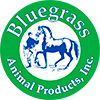Kennel cough, also called Canine Infectious Respiratory Disease, CIRD, or Invectious Tracheobronchitis is an infectious bronchitis of dogs characterized by a harsh, hacking cough that most people describe as sounding like “something is stuck in my dog’s throat.” None of us like seeing our pets sick, and kennel cough is one that you want to avoid as it can make dogs very sick.
Kennel cough can cause mild symptoms such as mild coughing and lethargy but it can also progress into life-threatening pneumonia.
What is kennel Cough?
Kennel cough is an infectious bronchitis that causes the trachea and bronchioles (throat) to become inflamed, resulting in a dry and persistent hacking cough. This cough is what many describe as sounding like your dog has something stuck in their throat. This bronchitis may not last long and might not require any treatment, or it could lead to life-threatening pneumonia depending on which infectious agents are involved and the dogs immunological strength. CaniOtic liquid and CaniOtic puppy prep help puppies to develop a strong immune system.
Infections with the following organisms frequently occur concurrently to create a case of kennel cough:
- Bordetella bronchiseptica (bacteria)
- Parainfluenza virus
- Adenovirus type 2
- Canine distemper virus
- Canine influenza virus
- Canine herpesvirus (very young puppies)
- Mycoplasma canis (a single-cell organism that is neither virus nor bacterium)
- Canine reovirus
- Canine respiratory coronavirus.
How do dogs get kennel cough?
Kennel cough is highly infectious. Kennel cough passes from an infected dog to a healthy dog through aerosolized bacteria and/or viruses. An infected dog sheds these bacteria and/or viruses through respiratory secretions.
Dogs most commonly get infected when they are in crowded situations with poor air circulation and lots of warm air (boarding kennel, vaccination clinic, obedience class, dog park, animal shelter, doggie daycare, grooming parlor, animal hospital waiting room)
The incubation period for kennel cough is 2-14 days. Dogs are typically sick for 1-2 weeks and infected dogs can continue to shed the Bordetella organism for 1 to 3 months following infection.
What are symptoms of kennel cough?
- Persistent dry, hacking cough
- Coughing during the night that keeps your dog awake
- Lethargy
- Loss of appetite
- Fever
- Labored breathing
If you notice that your dog has any of the symptoms of kennel cough it is important to contact your vet right away. Call your vet and explain the symptoms you are seeing, your vet might tell you to keep an eye on it for a few days before bringing them in for treatment or they might want to see them right away depending on the severity of the symptoms.
Is my dog at risk for kennel cough?
Kennel cough is highly infectious and can cause problems for even the healthiest dogs however some dogs are more at risk for severe illness. Dogs with lower immune defense such as puppies (especially those that haven’t been fully vaccinated), older dogs, pregnant dogs and those with pre-existing respiratory diseases.
What treatments are there for Kennel cough?
Uncomplicated cases of kennel cough will go away on its own and often don’t require treatment, however severe cases will require treatment. For mild cases cough suppressants can be prescribed to help your dog remain comfortable while the infection is resolving itself. For severe cases your vet might give antibiotics to help prevent pneumonia.
There are several home remedies that can help your dog with a mild case of kennel cough to be more comfortable. Before trying any of these home remedies it is important that you talk to your vet to determine if your dog has a severe case that might require medications. Some home remedies include adding a small amount of honey to warm water, using a humidifier or bringing your dog into the bathroom and running the shower hot to create a steam room.
Can kennel cough be prevented?
Vaccination is not available for all of the organisms that can cause kennel cough, however the Bordetella vaccine is often recommended for dogs that are around other dogs on a frequent basis. Vaccination is available for Bordetella bronchiseptica, canine adenovirus type 2, canine parainfluenza, canine distemper and canine influenza. Talk with your vet to determine what vaccinations are best for your dog.
Sources:
https://www.petmd.com/dog/care/best-ways-treat-kennel-cough-dogs
https://veterinarypartner.vin.com/default.aspx?pid=19239&id=4951478

